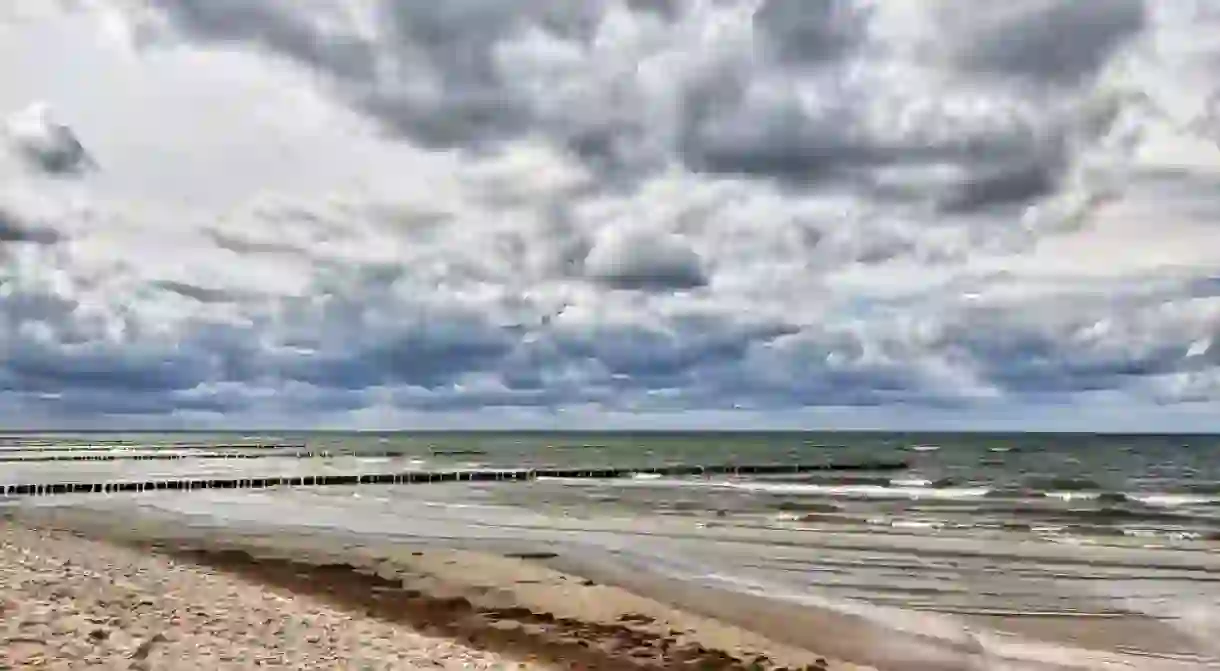German Book Prize-Winning Novel 'Kruso' is a Poetic Exploration of Grief

Poet Lutz Seiler’s bestselling novel Kruso, winner of the 2014 German Book Prize, was published in English for the first time this month. Based on Daniel Defoe’s Robinson Crusoe, the work is a melancholy meditation set in a small Baltic Sea island shortly before the fall of the Berlin Wall.

We live in strange times. Chalk outlines on the pavement tell of the United States’ gun-control problem, and the reasons for and backlash against the Black Lives Matter movement. In the midst of the Syrian refugee crisis in Europe—one of the greatest human emergencies of our lifetimes—a Hungarian camerawoman trips and kicks a Syrian man holding his child. And the rise of President Donald Trump has made “build that wall!” into a veritable battle cry. Borders, real and imaginary, have become points (or, perhaps, lines?) of stark contention.
But that in itself isn’t new. Perhaps one of the most famous walls of recent memory fell only 28 years ago—the Berlin Wall, a manmade structure that separated the Deutsche Demokratische Republik and the Bundesrepublik Deutschland. The Wall has since become an obsession for poets, politicians, and historians alike, both as metaphor and tragedy.
It is within this political climate that we enter the world of German poet Lutz Seiler’s debut novel, Kruso. The year is 1989, and Edgar “Ed” Bendler, a young student of literature at the German Studies Institute—his specialty is the Austrian Expressionist poet Georg Trakl, whose verse Ed is prone to recite to himself, trance-like, throughout the novel—is on the run.
Seiler does not make immediately clear what Ed is fleeing from, only that he is headed for the mystical Hiddensee, an idyllic island in the Baltic Sea shrouded by a mist of hushed voices. It is a haven for “castaways,” a place where wanderers can find temporary release from the weight of everyday life. Ed finds work as a seasonal employee at the Zum Klausner restaurant, and it is here that we meet head dishwasher Alexander Krusowitsch, who is called “Kruso” for short.
The two men are drawn to each other through shared tragedy and passions: naïve Ed is escaping a mundane day-to-day life and his studies following the death of his longtime love, who is only ever referred to mysteriously as “G.” Meanwhile, Kruso, the simultaneously tender and cruel leader of the Klausner restaurant’s motley crew, who is still coping with the loss of his beloved sister, Sonya, composes his own poetry in secret.

The novel can most easily be described as a rewriting of Daniel Defoe’s Robinson Crusoe, a work that has become such a well-known classic that even the average Anglophone can instantly recognize it in Seiler’s homonymic rendering. Such reinterpretations of Robinson Crusoe are nothing new—think His Girl Friday (1940), Elizabeth Bishop’s “Crusoe in England.” During World War II, those who chose to stay and hide in German-occupied Warsaw from October to January 1945 were referred to as the “Robinson Crusoes of Warsaw.”
However, what perhaps makes Kruso’s premise most interesting are the ways in which Seiler conflates the two most obvious components of its plot: the Cold War and the Crusoe theme. When Ed arrives at Hiddensee, the Klausner is still a secret place to aspire to, the subject of daydreams. With the advent of 1989 and the fall of the Berlin Wall, however, the island changes drastically, calling into question the nature of escape and of freedom, as well as the dynamic between Ed and Kruso:
“ ‘That’s just Defoe, Ed, don’t worry. For Robinson, Friday is the guide, at least he dreams that Friday’s one. A guide who helps him get off his island, get away from his bad luck. In his dream, it’s Friday who shows him which places to avoid so as not to be eaten, where he can venture or where he can’t, and how to get food …’
‘But that’s not how the story goes. In the book, Crusoe rescues Friday, the story is exactly the opposite.’
‘Are you sure?’ ”
Despite the overtly political tone of Kruso, it is perhaps at its core a deeply personal work, both in relation to its author (Seiler himself spent the summer of 1989 working at Hiddensee, and focused on German Studies during his time at Halle and Berlin) and the themes it concerns itself with. Its enigmatic nature is part of its charm and readability. The chapters, while amounting to 500 pages of text, are brief, surreal, unknowable, and brimming with Seiler’s poetic, sensory prose, reproduced well by translator Tess Lewis.
Kruso is ultimately an honest meditation on grief, the ways in which people lose, find, lose (and so the cycle continues) each other, rendered beautifully by Seiler’s vivid, unusual prose. In its more poetic moments, the work seems to say that, despite loss, life goes on, and that salvation can come through human connection, even on as isolated a place as an island:
“Assisted by a special kind of lunacy, an essence of gastronomy and poetry, they kept their ark afloat, day after day. And saved the lurching island.”
KRUSO
by Lutz Seiler (translated by Tess Lewis)
Scribe Publications
400pp. | £16.99













